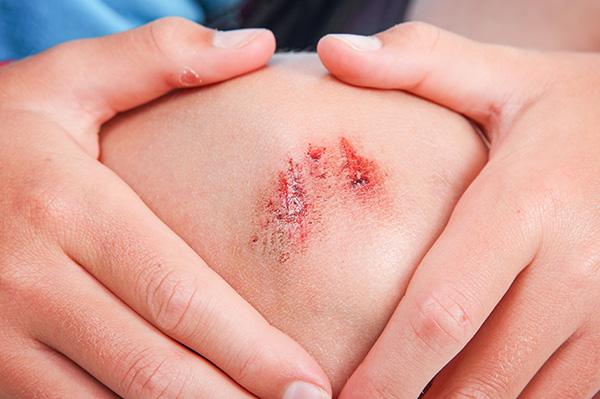You’ve probably scheduled a tetanus shot at some point in time for your child, but do you really understand what you are protecting them against? Get educated and learn the risk factors, symptoms and treatment for tetanus.

What is Tetanus?
A tetanus infection is caused by a bacteria that is found in soil, dust and animal feces. It enters your body through a wound and releases a toxin that attacks your nerves, leading to stiffness and spasms. Deeply cut or dirty wounds are at the most risk for tetanus.
Risk Factors
Individuals who have never been vaccinated or are not up to date on their vaccinations are at risk. Tetanus can also be contracted by puncture wounds (splinters, body piercings, tattoos, injection drugs), compound fractures, burns, surgical wounds, animal/insect bites, dental infections, infected umbilical stumps in newborns (of unimmunized mothers), infected foot ulcers and gunshot wounds.
You cannot contract tetanus from an infected person.
Symptoms
– Spasms and stiffness in your jaw muscles (trismus)
– Stiffness of your neck muscles
– Difficulty swallowing
– Stiffness of your abdominal muscles
– Painful body spasms lasting for several minutes, typically triggered by minor occurrences, such as a draft, loud noise, physical touch or light
Possible other symptoms include fever, sweating, elevated blood pressure and rapid heart rate. Once the toxin has bonded to the nerve endings, it takes several months for new nerve endings to grow in place. Severe symptoms can lead to broken bones (from the spasms), pulmonary embolism (a blood clot in the lungs), and death (by difficulty breathing from spasms).
Treatment
There is no cure for tetanus, however medication and wound care can ease symptoms. Wound care is essential to prevent the spread of the tetanus spores and should be handled immediately after injury by health personnel. The wound should be kept very clean afterwards.
Make sure your doctor knows when, where and how the injury happened in addition to your immunization record, your wound care and any chronic illness you have. Your doctor will suggest the best course of action and some alternatives.
Prevention
Being properly immunized can prevent tetanus. If you were not immunized as a child, ask your doctor about the booster shot. If you are traveling abroad to a country where tetanus is common, make sure you are immunized. In general, biannual checkups are beneficial in making sure your immunizations are up to date and you are in good health.
We know you may not always be informed. Neighbors takes pride in educating the community as best we can for the safety and health of all families. We are here for you 24 hours a day, 7 days a week, 365 days a year. Visit nec24.com to find the Neighbors Emergency Center nearest you!

